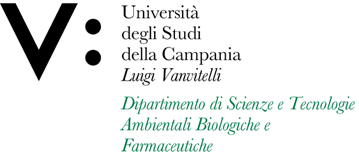Flora Angela RUTIGLIANO
Insegnamento di SOSTENIBILITA' AMBIENTALE
Corso di laurea in SCIENZE BIOLOGICHE
SSD: BIO/07
CFU: 2,00
ORE PER UNITÀ DIDATTICA: 16,00
Periodo di Erogazione: Secondo Semestre
Italiano
| Lingua di insegnamento | ITALIANO |
| Lingua di insegnamento | ITALIANO |
| Contenuti | Il modulo di Sostenibilità ambientale è parte integrante del corso di Fondamenti di Sostenibilità, che tratta le problematiche della sostenibilità, con particolare riferimento ai 17 Obiettivi dell'Agenda 2030 delle Nazioni Unite per lo Sviluppo Sostenibile e alle tre dimensioni dello sviluppo sostenibile: ambientale, sociale ed economica. Il modulo di Sostenibilità ambientale è fortemente integrato con gli altri due moduli dello stesso corso, Sostenibilità sociale (2 CFU) e Sostenibilità economica (2 CFU), dato che gli obiettivi dell’Agenda 2030 per lo Sviluppo sostenibile sono interconnessi e indivisibili. |
| Testi di riferimento | Materiale didattico fornito dai docenti |
| Obiettivi formativi | Il modulo di Sostenibilità ambientale focalizza l’attenzione sugli obiettivi dell'Agenda 2030 delle Nazioni Unite per lo Sviluppo Sostenibile che si riferiscono principalmente alla dimensione ambientale (goal 6, 13, 14, 15), pur non trascurando gli aspetti economici e sociali strettamente interconnessi. Il modulo mira a sottolineare che lo sviluppo sociale ed economico dipende dalla gestione sostenibile delle risorse naturali del Pianeta. |
| Prerequisiti | Nessuno |
| Metodologie didattiche | Il corso è articolato in 16 ore di lezioni a distanza (su Microsoft Teams), che consistono in webinar tenuti da docenti diversi. |
| Metodi di valutazione | La verifica dell'apprendimento è effettuata mediante un esame scritto che consiste in domande a risposta multipla su argomenti indicati nel programma. |
| Altre informazioni | Gli studenti potranno avvalersi delle slide e di altro materiale didattico fornito dai docenti. |
| Programma del corso | Il modulo si articola in webinar tenuti da diversi docenti dei seguenti s.s.d.: BIO/07 (docente di riferimento), AGR/05, BIO/01, BIO/03, CHIM/12, FIS/07, GEO/05, ICAR/02, IUS/09. |
English
| Teaching language | Italian |
| Teaching language | Italian |
| Contents | The Environmental Sustainability module is an integral part of the Fundamentals of Sustainability course, which deals with sustainability issues, with particular reference to the 17 Goals of the United Nations 2030 Agenda for Sustainable Development and the three dimensions of sustainable development: environmental, social and economic. The Environmental Sustainability module is strongly integrated with the other two modules of the same course, Social Sustainability (2 CFU) and Economic Sustainability (2 CFU), as the goals of the 2030 Agenda for Sustainable Development are interconnected and indivisible. |
| Textbook and course materials | Teaching materials provided by lecturers |
| Course objectives | The Environmental Sustainability module focuses on the goals of the United Nations 2030 Agenda for Sustainable Development, which mainly refer to the environmental dimension (goals 6, 13, 14, 15), while not neglecting the closely interconnected economic and social aspects. The module aims to emphasize that social and economic development depends on the sustainable management of the planet's natural resources. |
| Prerequisites | None |
| Teaching methods | The course consists of 16 hours of online lessons (on Microsoft Teams) consisting of webinars given by different lecturers. |
| Evaluation methods | Learning is tested by means of a written examination consisting of multiple-choice questions on topics indicated in the syllabus. |
| Other information | Students may make use of the slides and other teaching materials provided by the lecturers. |
| Course Syllabus | The module consists of webinars held by various lecturers of the following s.s.d.: BIO/07 (reference lecturer), AGR/05, BIO/01, BIO/03, CHIM/12, FIS/07, GEO/05, ICAR/02, IUS/09. |








